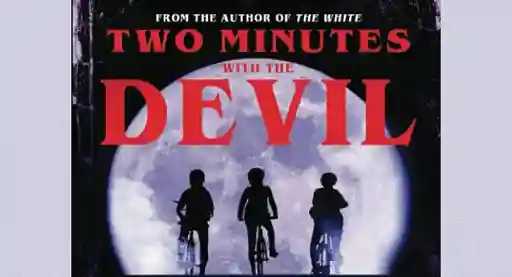Bookshots: Pumping new life into the corpse of the book review
Title:
Leaving the Sea: Stories
Who wrote it?
Ben Marcus, author of The Age of Wire and String, Notable American Women, and The Flame Alphabet. Marcus is a professor at Colombia University, the editor of The Anchor Book of New American Short Stories, and fiction editor of The American Reader. He has received numerous awards and endowments, including a 2013 Guggenheim Fellowship.
Plot in a Box:
Marcus tends towards the experimental. Some of these stories have discernable plots. Others... not so much.
Invent a new title for this book:
What Is A Cousin For?
Read this if you liked:
The Flame Alphabet, language manipulation, mind games.
Meet the book’s lead(s):
Marcus' leads are men, mostly. Angry, neurotic men with low self-esteem and father issues.
Said lead(s) would be portrayed in a movie by:
Paul Giamatti. All of them.
Setting: Would you want to live there?
Some of Marcus' settings are mundane. Others are dystopian. None are particularly pleasant.
What Was Your Favorite Sentence?
If the sun has witnessed our behavior, perhaps one day we will reappear on some horizon, and we will again walk the earth and inhale some of the world's harder wind, to keep it off the bodies of those people not yet born.
The Verdict:
If any of these stories could be described as "easy," that's how Marcus starts you off. Leaving the Sea is broken up into six sections, the first of which showcases his more accessible work. And by accessible, I mean non-experimental. Because these aren't straightforward stories about characters with clear-cut goals. Marcus prefers do drop you in and pull you out at what seems to be a whim, leaving you to ponder a moment in time and what transpires once the story ends. This ensures his characters will live on after the final page is turned and the book is back on the shelf. It's his way of saying, "They're your problem, now."
The clear standout of this section has to be "Rollingwood," one of the most unnerving stories I've ever read. I'd even go as far as calling it horror. It tells the tale of a man abandoned with a possibly-sick child (there is a lot of "possible-sickness" in Marcus' world) that never stops crying. By the end I felt as if the shrieking whelp was in the room with me. A brilliant story, but an unpleasant experience. The kind Marcus excels at.
Section two features a pair of abstract question-and-answer sessions: "On Not Growing Up" and "My Views on the Darkness." This is the collection dipping it's toe into non-traditional narrative.
—How long have you been a child?
—Seventy-one years.—Who did you work with?
—Meyerowits for the first phase: teething, walking, talking. He taught me how to produce false prodigy markers and developmental reversals, to test the power in the room without speaking.
But Marcus wisely allows the reader to acclimate slowly, pulling back the foot with section three, giving us two stories about the responsibilities of children to elderly parents. "Watching Mysteries With My Mother" calculates the probability of a parent's death while the child is away, as it relates to Whodunit murder mysteries. "The Loyalty Protocol" is a dystopian where the preservation of society is more important than the familial bond. Two very different takes on similar subject matter.
Then, with sections four and five, Marcus says, "fuck it," and pushes you in. These pieces contain short bursts of abstract wordplay and deconstructed ideas. From the dystopian "The Father Costume" to the title story, "Leaving the Sea"—a breathless, disintegration of a life told in (almost) a single sentence—these stories challenge the reader in ways that render them more a participant than a spectator. This is where Marcus takes his biggest creative risks. It is exhilarating and just a little bit scary.
But Marcus doesn't leave us to drown. At the last possible moment he extends a hand, a forty-plus page closer called "The Moors." It is a pathetic yet hysterical story that takes place entirely within the few minutes a man waits in line for coffee. He stands behind a female co-worker, over-analyzing the minutiae of his life in an effort to come up with the right thing to say to her. And what he finally comes up with... priceless.
Obviously Marcus' work isn't for everyone. Still, there's no denying the man's talent. The stories in Leaving the Sea are the perfect showcase for his range and innovation. They are thoughtful, challenging, even frustrating, but the rewards are there for those willing to put in the effort.

About the author
Joshua Chaplinsky is the Managing Editor of LitReactor. He is the author of The Paradox Twins (CLASH Books), the story collection Whispers in the Ear of A Dreaming Ape, and the parody Kanye West—Reanimator. His short fiction has been published by Vice, Vol. 1 Brooklyn, Thuglit, Severed Press, Perpetual Motion Machine Publishing, Broken River Books, and more. Follow him on Twitter and Instagram at @jaceycockrobin. More info at joshuachaplinsky.com and unravelingtheparadox.com.








